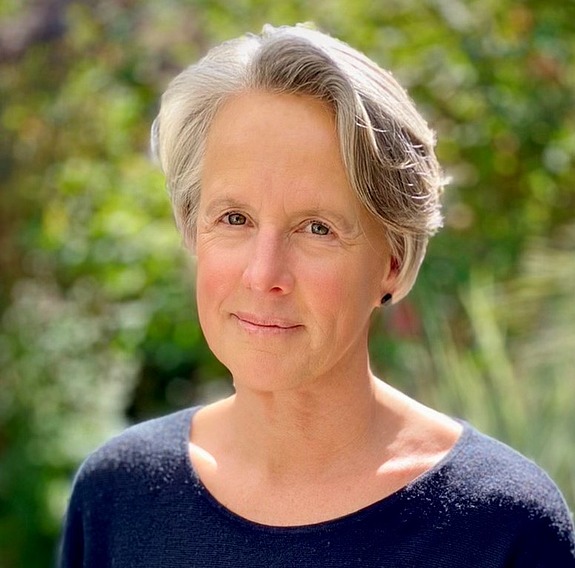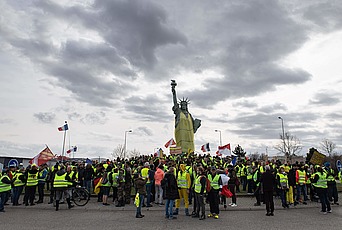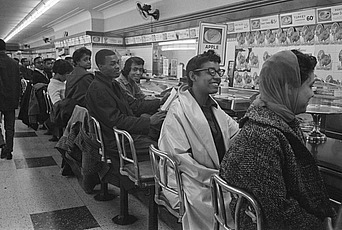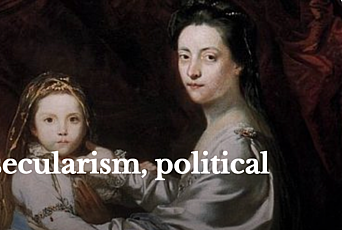Political Theorist Wendy L. Brown Joins Faculty of the Institute for Advanced Study
Press Contact

Wendy L. Brown, one of the preeminent political theorists of her generation, has joined the Institute for Advanced Study as the UPS Foundation Professor in the School of Social Science. Brown’s foundational insights into neoliberalism, authoritarianism, feminism, sovereignty, progress, and tolerance, among other signature concepts, have revolutionized understandings of democracy and the modern powers that challenge it. Brown was previously the Class of 1936 First Chair of Political Science at the University of California, Berkeley. Her appointment to the IAS Faculty is effective July 1, 2021.
“An architect of ideas with an exceptional range of interests, Wendy is a wonderful addition to the IAS Faculty,” stated Robbert Dijkgraaf, IAS Director and Leon Levy Professor. “Her research transcends disciplinary boundaries and has advanced the fields of law, politics, economics, and history, among many others, but most of all provides new frameworks for understanding the wide-ranging complexities of society.”
Brown was previously a Member (2001–02) and Visitor (1992–93) in the School of Social Science. As part of the Faculty, she will lead the School’s special theme year on “Political Mobilizations and Social Movements” for the 2021–22 academic term with James D. Wolfensohn Professor Didier Fassin and in collaboration with Harold F. Linder Professor Alondra Nelson.
“Professor Wendy Brown is recognized as one of the most original political theorists in the world,” stated Fassin. “A scholar of extraordinary breadth, she has also made signal contributions to the fields of legal theory, feminist theory, social theory, and political economy. Her joining our Faculty extends the tradition of scientific rigor and creativity at the School of Social Science.”
Brown’s scholarship draws upon the history of political theory, 19th and 20th century Continental theory, critical theory, and theories of contemporary capitalism. She is best known for intertwining the insights of Marx, Nietzsche, Weber, Freud, Frankfurt School theorists, and contemporary Continental philosophers such as Foucault to critically interrogate formations of power, political identity, citizenship, and political subjectivity in contemporary liberal democracies. In recent years, her scholarship has focused on neoliberalism and the affective and political formations to which it gives rise. Her current research focuses on how care for political freedom can be reconciled with repairing legacies of racial and sexual subordination and addressing the climate crisis.
“I have long admired the Institute’s commitment to forthrightly interpretive and interdisciplinary social science, a commitment as rare as it is important,” stated Brown. “I am delighted to be joining splendid colleagues to develop this commitment in rich new directions.”
Brown has authored eight books—translated into more than 20 languages—co-authored or edited four more, and penned numerous essays and articles for scholarly publications. Brown’s writing reflects a diverse range of subject matter and incisive analysis with enduring relevance.
In her first book, Manhood and Politics: A Feminist Reading in Political Theory (Rowman and Littlefield, 1988), Brown added new layers to the exploration of gender theory, considering the terms “manhood” and “masculinity” and the question: “Is politics gendered?” This groundbreaking work was one of the first to separate gender from sexual difference, and it expanded upon the classical feminist perspective of women’s political exclusion to the implications of formulations of politics in the image of masculinity. The work has been influential among sociologists, gender and cultural studies scholars, and political scientists.
States of Injury: Power and Freedom in Late Modernity (Princeton University Press, 1995) offers a social, political, and psychoanalytic account of the injury at the site of modern political identity. In this work, Brown develops the oft-cited notion of “wounded attachments” shaping political expression and demands on both the left and right today.
In Regulating Aversion: Tolerance in the Age of Identity and Empire (Princeton University Press, 2006), Brown critically theorizes contemporary discourses of “tolerance.” She examines the operation of the term as a substitute for equality and a reinforcement of social and even civilizational stratifications in which the tolerant are virtuous and the tolerated are abjected. This work is just one example of Brown’s nuanced perspective and her ability to reinterpret present-day political problems.
In Walled States, Waning Sovereignty (Zone Books, 2010), which won the 2012 David Easton Prize from the American Political Science Association, Brown considers the global explosion of nation-state wall-building during the two decades following the fall of the Berlin Wall. This work reasons that the practice was indicative, not of external threats, but rather the existence of unsolvable internal problems and the need to shore up an image of nation state sovereignty in the context of its erosion by globalization. Her insights proved prescient, anticipating the sovereignty debates surrounding the European immigration crisis and the U.S. southern border wall.
Her books Undoing the Demos: Neoliberalism’s Stealth Revolution (Zone Books, 2015), winner of the 2017 David and Elaine Spitz Prize for best book in liberal or democratic theory, and In the Ruins of Neoliberalism: The Rise of Anti-Democratic Politics in the West (Columbia University Press, 2019) provide a comprehensive political theory of neoliberalism, a form of governing that has prioritized markets and delegitimated the social state and the idea of society on which it is premised. Both books study the implications of neoliberal policies for the ways in which they undermine democratic states, cultures, and citizens. In the first book, she examines how neoliberalism transforms the state and the citizen, reducing both to economic entities; in the second, she reveals the neoliberal roots of recent authoritarian formations within liberal democracies. These works have been the subject of numerous interviews, podcasts, and journalistic accounts of the crisis of democracy.
Brown received her Ph.D. in Political Philosophy from Princeton University in 1983. Prior to joining IAS, she served on the faculties of the University of California, Berkeley (1999–2021), UC Santa Cruz (1989–99), and Williams College (1983–89). In addition to winning excellence-in-teaching awards at Berkeley and Santa Cruz, she has held a number of distinguished fellowships and visiting professorships, most recently at Columbia, Cornell, Birkbeck, Lucerne, and the London School of Economics. In 2017–18 she was a Simon Guggenheim Fellow and a UC Presidents Humanities Research Fellow. Brown has delivered more than two dozen endowed lectures, including most recently the Tanner Lectures at Yale University (2019), the Gauss Seminars in Criticism at Princeton University (2018), and the Rene Wellek Lectures in Critical Theory at UC Irvine (2018).
About the Institute
The Institute for Advanced Study is one of the world's foremost centers for theoretical research and intellectual inquiry. Located in Princeton, NJ, the IAS is dedicated to independent study across the sciences and humanities. Founded in 1930, the Institute is devoted to advancing the frontiers of knowledge without concern for immediate application. From founding IAS Professor Albert Einstein to the foremost thinkers of today, the IAS enables bold, curiosity-driven innovation to enrich society in unexpected ways.
Each year, the Institute welcomes more than 200 of the world's most promising post-doctoral researchers and scholars who are selected and mentored by a permanent Faculty, each of whom are preeminent leaders in their fields. Among present and past Faculty and Members there have been 35 Nobel Laureates, 42 of the 60 Fields Medalists, and 21 of the 24 Abel Prize Laureates, as well as many MacArthur Fellows and Wolf Prize winners.


